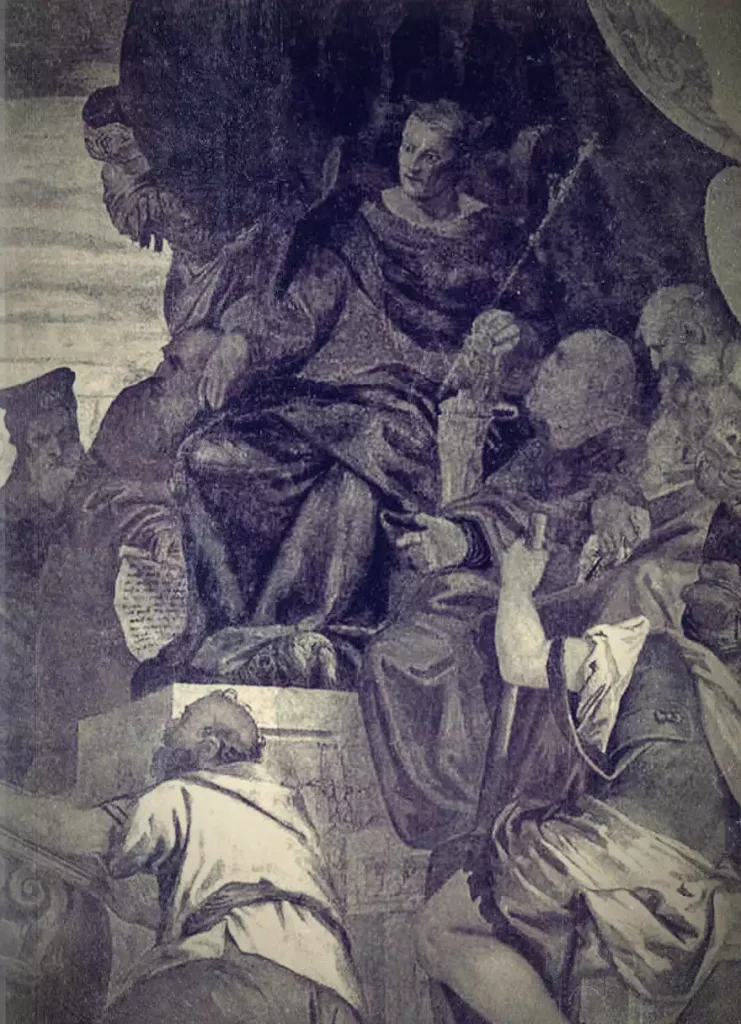110 AD Ignatius of Antioch coins term “Catholic” meaning Universal Church
In the pivotal year of 110 AD, a momentous term was articulated by Bishop Ignatius of Antioch that would indelibly shape the Christian lexicon: ‘catholic’. Derived from the Greek word ‘Καθολική’ (katholikē), it elegantly fuses ‘κατά’ (kata, ‘about’) and ‘ὅλος’ (holos, ‘whole’) to signify ‘universal’ or ‘concerning the whole’. This linguistic gem encapsulates the essence of inclusivity and totality, a concept that Ignatius fervently embraced and propagated. Born around 35 AD and embracing martyrdom in 108 AD, Ignatius stands as a monumental figure in early Christian history. His profound ideation of a church that transcends geographical and cultural confines, serving as a spiritual haven for all, marked a significant evolution in the Church’s understanding of itself. Through his teachings and writings, particularly during his journey to martyrdom, Ignatius of Antioch championed a vision of the Church as a universal entity, a community unbounded by earthly divisions, united in faith and purpose.
303 AD Emperor Diocletian begins Great Persecution, destroys churches, burns Scriptures

In the annals of history, 303 AD marks a significant epoch, characterised by Emperor Diocletian’s directive leading to the Great Persecution. This period witnessed an unparalleled crackdown on Christian communities, resulting in the demolition of churches and the incineration of sacred Scriptures. The Dawn of Persecution The year 303 AD heralded a tumultuous phase for […]
